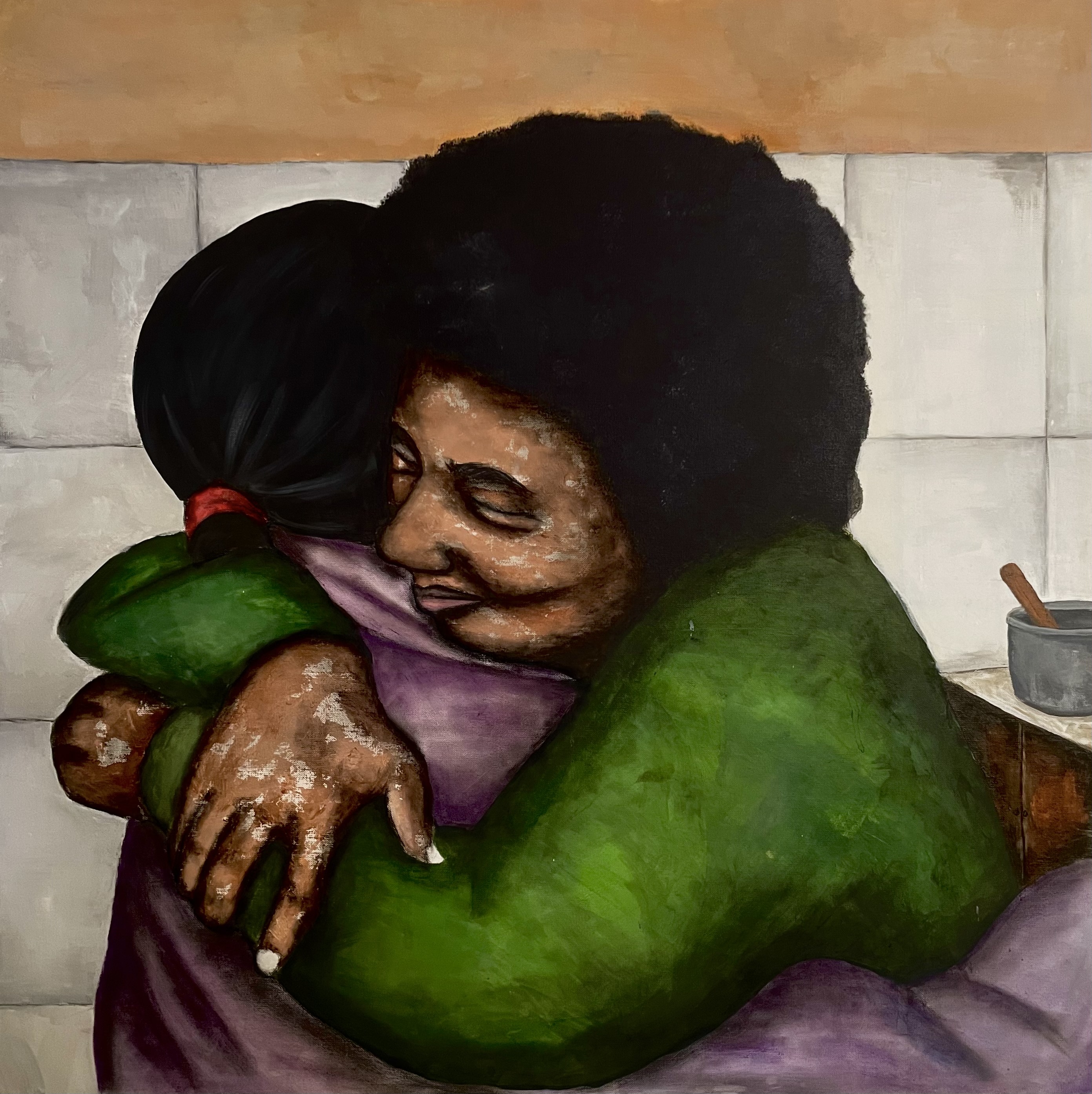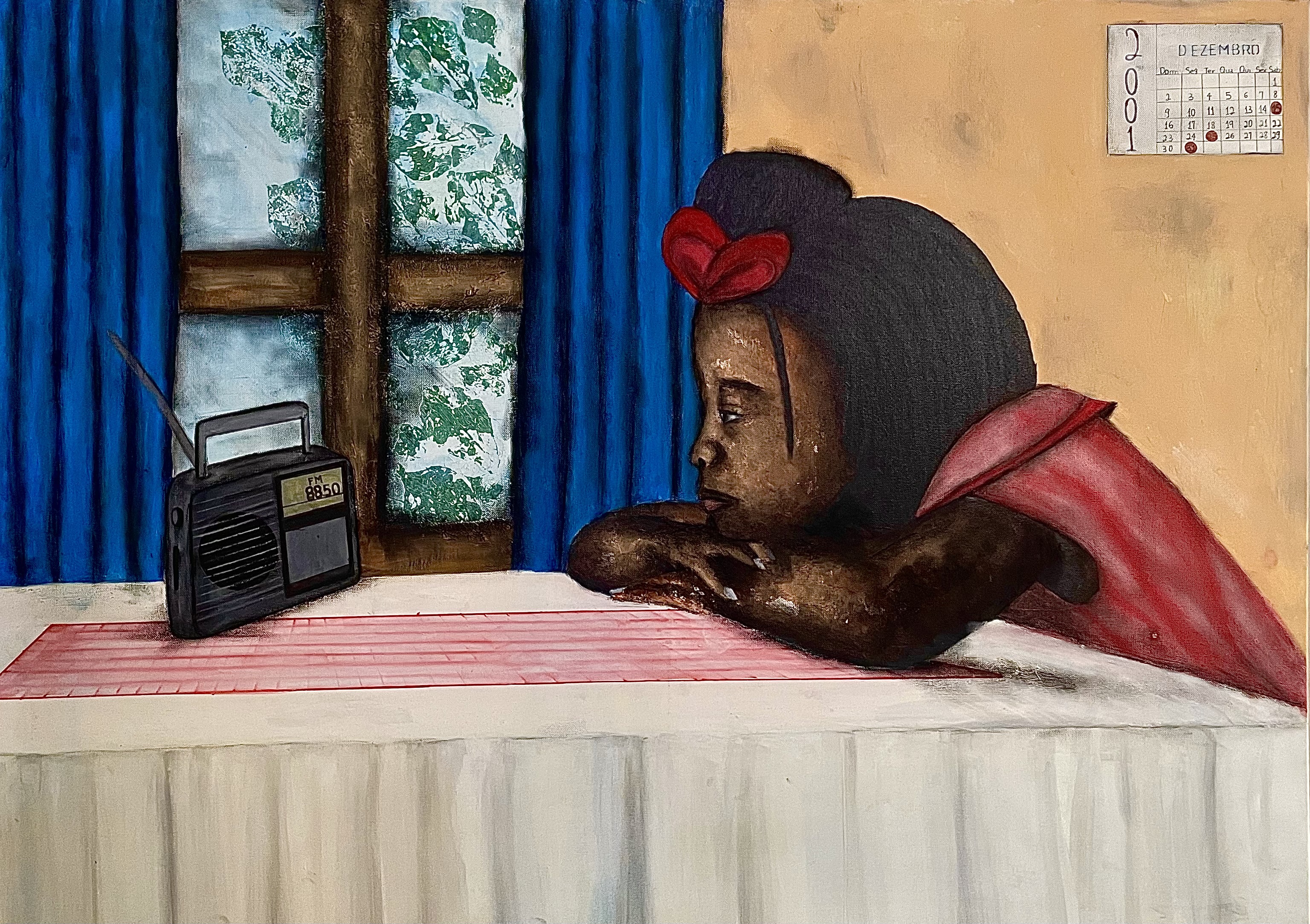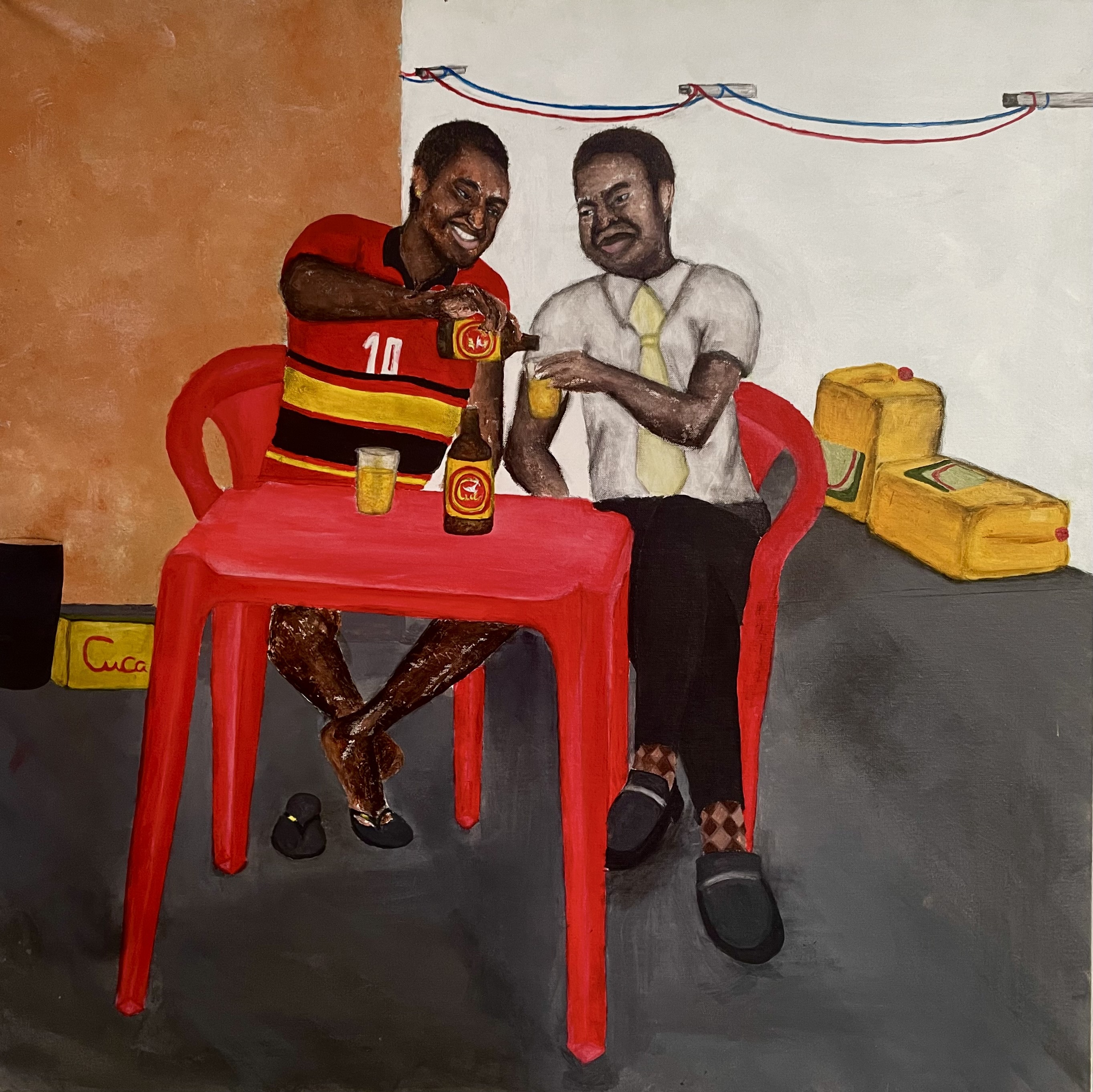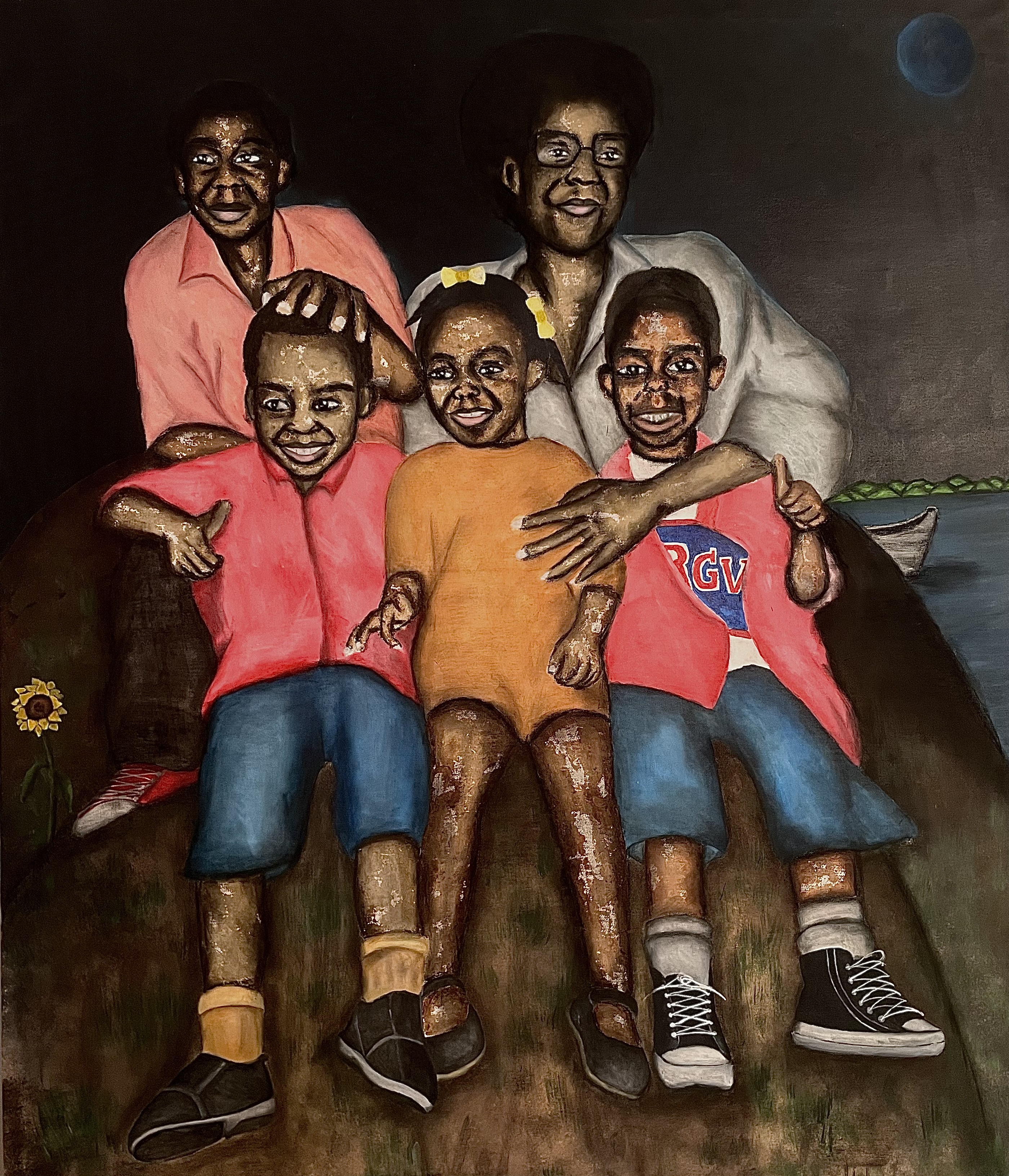
The Kimbundu term for “home,” “Ndako,” as an exhibition, is an invitation to transcend time, immersing oneself nostalgically in the family memories of Débora Sandjai through a harmonious combination of painting, video, and personal reminiscences. Together, these elements create a place of gathering and belonging that resonates deeply with the collective memory space of three generations sharing the history of Angola's civil war.

This exhibition presents a collection of 10 previously unseen works that evoke notions of strength and perseverance through the representation of a geography of affections, inhabited by joyous celebrations, glimpses of family unity, and spaces of reunion. It is filled with moments that are deeply longed for in these times of extreme social and political fragmentation, where idealisms often succumb.

Débora Sandjai's artistic production poignantly captures this metamorphosis. Her works evoke the intimate and familial photographic style of the 1990s and early 2000s, capturing moments that invite reflection. They depict family gatherings, reunions after years of separation due to war, and the performance of maternal, paternal, and fraternal figures.
These occurrences take on a deeply autobiographical character. They are interwoven with Débora Sandjai’s personal experiences, who grew up as a Jehovah’s Witness, surrounded by a religious belief that, with its extensive list of prohibitions, distanced her from her family, creating space for a sublime relationship with her grandmother, who held different religious beliefs.

is buried under the convulsive state of a country that unravels it, in favor of a mindset of individual survival, but one that can be revived by sustaining the essence of family ties, the hallmark of home.

In this exhibition, transcending the concept of a mere field of memory inscription, each work is a fragment of a developing identity, where personal memories intertwine with the collective reminiscence of a nation. Through it, Débora Sandjai recovers abandoned stories and omitted feelings, evoking a deep connection to roots and ancestry. In "Ndako," the home ceases to be merely a physical space and is reconsidered as a constellation of experiences, shared lives, and affections that span generations and resist the erosion of time.

As we navigate this exhibition, we are invited to reflect on the volatile nature of identity, constructed not only in the points of departure or arrival but in the moments of encounter, in the shared silences, and in the shared memories. "Ndako" challenges us to recognize that our essence is sculpted by intimate experiences, by the stories we inherit, and by those we choose to live and tell.


